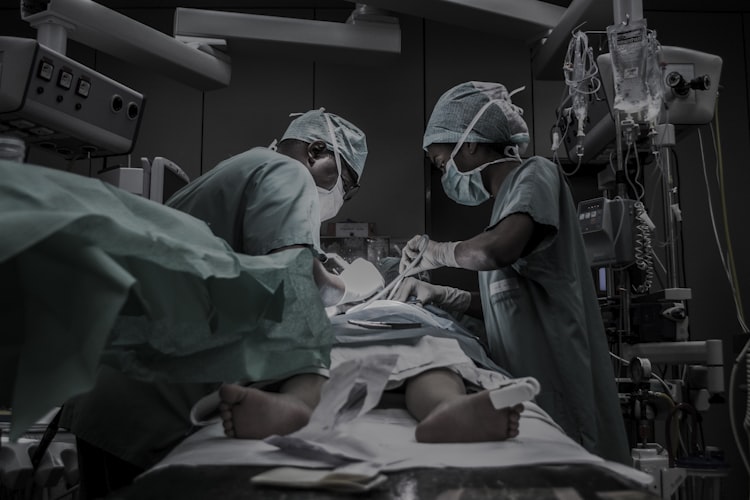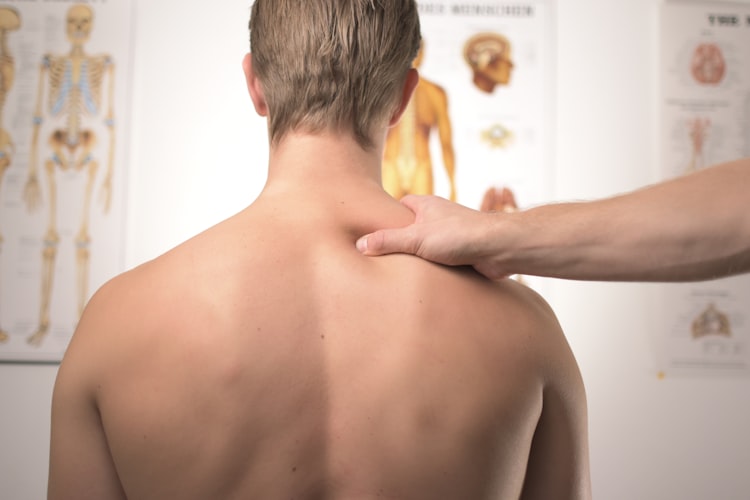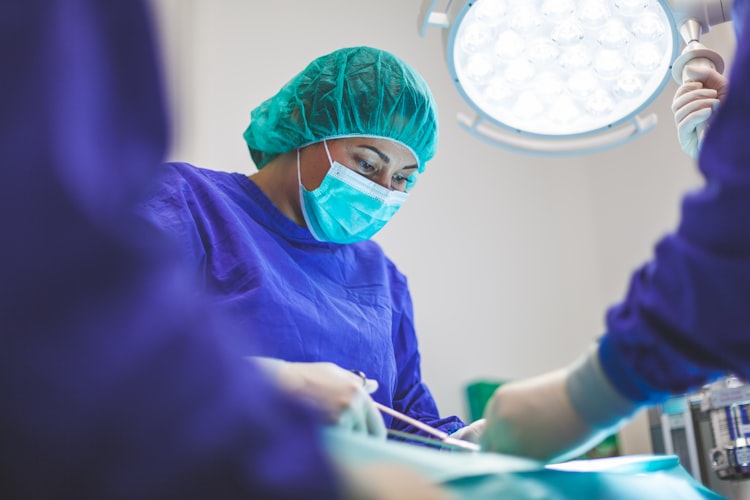Several institutions provide medical education in Australia with excellent standards including, Medical Specialty Colleges and Medical Schools governed by the Australian Medical Council (AMC), Medical Board of Australia, and Australian Health Practitioners Regulatory Agency.
Australia has a number of different surgical specialties, and learning about all of them can be confusing. That’s why we’ve decided to create this list of surgical specialists in Australia. The purpose of this page is to serve as a directory for anyone needing to find out more information about a specific specialty. If you’re wondering what kinds of surgeries each specialty performs, then you may want to check out the Australian Surgical Specialists website for more information. They also have some interesting articles about different aspects of surgery.

Surgical Specialties in Australia
No matter where you live or which doctor you register with, when it comes to surgery in Australia, the options are many. The following is a list of all branches of surgical specialties education offered in Australia.
General Surgery

General Surgery is a surgical specialty that focuses on the diagnosis and treatment of all diseases, injuries, and deformities of the abdominal, thoracic, and peripheral regions.
General surgeons perform a wide range of procedures including gallbladder surgery, appendectomy, colon surgery (colectomy), thyroid surgery (thyroidectomy) and vascular surgery to name a few.
General surgeons also see patients with chronic pain due to musculoskeletal problems such as arthritis or carpal tunnel syndrome. They may also perform cosmetic surgeries including breast reduction or eyelid surgery.
Many universities provide a General Surgery course. General Surgery deals with the abdomen areas of the stomach, esophagus, intestines, liver, pancreas, appendix, gall bladder, bile ducts, even thyroid glands. They include endoscopic procedures dealing with the skin, soft tissue, breast, trauma, and hernias.
Oral and Maxillofacial Surgery

Oral and maxillofacial surgeons in Australia are highly trained medical professionals who deal with the diagnosis and surgical treatment of diseases, injuries and deformities of the mouth, jaws, teeth and face. The scope of their work includes dental implants, corrective jaw surgery, treatment of TMJ disorders and the removal of wisdom teeth. They also treat facial trauma, such as that caused by car accidents or sporting injuries. In this blog post, we will explore the different surgical specialties that oral and maxillofacial surgeons in Australia can choose to focus on.
There are many different surgical procedures that oral and maxillofacial surgeons can perform. Some of the more common ones include:
-Corrective jaw surgery: This type of surgery is used to correct problems with the alignment of the jaw, which can result in difficulty chewing, speaking, or breathing.
-Dental implants: Dental implants are used to replace missing teeth. The implant is placed into the jawbone and a artificial tooth (crown) is then attached to it.
-Cleft lip and palate surgery: Cleft lip and palate surgery is performed to correct birth defects that cause these conditions. Surgery can involve closing the opening in the lip or palate, or both.
-Facial trauma surgery: Facial trauma surgery is performed to repair damage caused by accidents or injuries. This can include fractures of the facial bones, lacerations (cuts), or soft tissue damage.
Oral and maxillofacial surgeons in Australia are highly sought after for their expertise in diagnosing and treating conditions of the mouth, teeth, jaws and face. If you are considering a career in this field, we hope this article has given you a better understanding of what is involved. We wish you all the best in your studies and future career!
Cardiothoracic Surgery

Cardiothoracic Surgery is related to the thorax or chest. As stated, it deals with organs inside the thorax, i.e., heart and lungs. Unlike many countries, Australia combines thoracic Surgery with heart surgeries as a standard surgical speciality stream. It takes about eight to ten years for a medical student to become a cardiothoracic surgeon.
Cardiothoracic surgery is a surgical specialty that deals with conditions involving the heart and lungs. Cardiothoracic surgeons perform open-heart surgery, coronary artery bypass graft (CABG) surgery, heart valve repair or replacement and transplantation of the heart, lungs and other organs.
Cardiothoracic surgeons are certified by the Royal Australasian College of Surgeons (RACS).
Orthopaedic Surgery

Orthopaedic surgical speciality provides training in treating the musculoskeletal system with surgical and non-surgical techniques. It majorly deals with spine diseases, musculoskeletal trauma, sports injuries, tumours, infections, degenerative diseases, and congenital disorders.
Orthopaedic Surgery is the branch of surgery that deals with the repair, replacement and reconstruction of the bones, joints and ligaments. Orthopaedic surgeons treat patients with congenital conditions such as clubfoot, or those that develop later in life such as arthritis. They also treat sports injuries and chronic pain conditions.
Orthopaedic surgeons are also known as “bone doctors” because they deal with treatment of the skeleton. They can practice as general orthopaedic surgeons, who focus on all aspects of orthopaedics, or subspecialise into one area such as paediatric orthopaedics or sports medicine.
Neurosurgery
Neurosurgery, also known as neurological surgery is concerned with the diagnosis, prevention, and surgical treatment of the nervous system issues including the spinal cord, brain, cerebrovascular system, and peripheral nerves. New techniques like microsurgery, endoscopy are extensively used in neurosurgery, as it requires a great deal of precision.
Neurosurgery is a surgical specialty concerned with the diagnosis, treatment, and prevention of diseases and injuries of the spine, brain, and nervous system.
Neurosurgeons treat patients who have conditions affecting the head, neck, brain, spinal cord, peripheral nerves and other disorders that are uniquely managed by neurosurgeons.
Pediatric Surgery

Pediatric Surgery is the surgical speciality branch concerned with infants, children, fetuses, and adolescents. There are again further sub-specialities like fetal Surgery and neonatal Surgery.
Pediatric surgery is a subspecialty of surgery that focuses on the surgical care of infants, children, adolescents, and young adults. Pediatric surgeons provide treatment for congenital malformations, trauma, tumors, infections and other disorders of the musculoskeletal system. They also perform surgery on newborns with complex heart defects requiring early intervention to improve survival.
Pediatric surgeons may work in many different settings including hospitals, private practice and outpatient clinics. They may also teach in medical schools or conduct research at universities or other institutions.
Otolaryngology-Head and Neck Surgery

Otolaryngology is a split of surgical speciality dealing with the problems related to the head and neck. It involves the treatment of ear, throat, and nose diseases.
Otolaryngology is a branch of medicine that deals with the diagnosis and treatment of diseases involving the ears, nose, throat (ENT), and related structures of the head and neck. An otolaryngologist is a physician who specializes in otolaryngology-head and neck surgery.
Otolaryngologists may also be involved with cosmetic surgery procedures such as rhinoplasty (nose reshaping), facelift, eyelid surgery, hair transplants, and many other reconstructive surgeries.
Plastic and Reconstructive Surgery

Plastic and Reconstructive Surgery is a stream that is rapidly widening. The stream deals with all procedures related to the body’s alteration, reconstruction, and restoration. The branch is further divided into the cosmetic surgery and reconstructive surgery.
Plastic Surgeons perform cosmetic surgery on the face, breast and body. They may also reconstruct damaged areas of the body such as limbs, hands and feet. Plastic surgeons are members of the Australasian College of Cosmetic Surgery and the Royal Australasian College of Surgeons (RACS).
Reconstructive surgeons specialise in repairing damage to bones, muscles, tendons and nerves. They often work with plastic surgeons to repair injuries sustained to these areas of the body. Reconstructive surgeons are members of the Australian Society for Plastic Surgeons (ASPS), Australian Orthopaedic Association (AOA) or Royal Australasian College of Surgeons (RACS).
Urology

Urology is another split of surgical speciality dealing with the urinary tract tissues of males and females, as well as the male reproductive system. The stream cures problems related to the kidney, ureters, adrenal glands, urethra, urinary bladder, and the male reproductive organs.
Urology is a surgical specialty that focuses on the urinary tract system. This includes the kidneys, bladder and urethra. The main functions of this system include filtering blood products and eliminating waste products from the body through urination.
The goals of urology include relieving pain, treating infections in the urinary tract system and preventing complications caused by diseases like diabetes or cancer. Urologists can also perform procedures such as kidney transplants or reconstructing damaged nerves in patients who have had prostate surgery.
Vascular Surgery

In vascular surgery, diseases of the veins, lymphatic circulation, and arteries are handled through medical therapy using minimally invasive procedures and reconstruction by a vascular specialist surgeon.
Vascular surgery is a surgical specialty concerned with the diagnosis, treatment and prevention of diseases involving the circulatory system, especially the arteries and veins. The field includes interventions to treat other problems with blood vessels, such as aneurysms, fistulas, arteriovenous malformations or varicose veins.
Approximate Cost
The approximate course fees for Australia and New Zealand Surgical Skills Education and Training (ASSET) Course is $3820, including GST. Apart from this, the universities have their fee structure and scholarship programs for the students willing to take admission in Surgical Specialties.
Entry Requirements
If you are going to be a surgeon, you need first to attain a degree in medicine. Entry to the universities providing surgical specialities courses is difficult with a wide range of tests. To study medicine in Australia, you need to clear either the Undergraduate Medicine and Health Sciences Admission Test (UMAT) or Graduate Australian Medical School Admission Test (GAMSAT).
Do you wish to reach the prestigious position of a surgeon? Then you need to choose the right branch of specialization in a premier university. A surgeon’s job is one of responsibility, skill, discipline, and high ethical standards.
Conclusion
Going into further studies and choosing the right surgical specialties for you is an important decision in life. You will have to have a clear understanding of what kind of medical career you want to pursue. It is vital to choose the best career option after your graduation from medical school as you will be required to dedicate your time and energy for such a task.
You should give into account all the information available about the surgical specialties before committing yourself to it, in addition you need to consider the passion you have for surgery and if it is something worth pursuing – so if you need insights on the different surgical specialties in Australia then this might help you get an idea and make a well-informed decision!
FAQs
1. What is a surgical specialty?
A surgical specialty is a branch of surgery that focuses on a particular area of the body or a specific type of surgery.
2. What are the different types of surgical specialties surgery?
There are many different types of surgery, including:
Cardiovascular surgery
Pediatric surgery
Plastic surgery
Orthopedic surgery
3. Can I do more than one type of surgery?
Yes, you can do more than one type of surgery.
4. How do I become a surgeon?
To become a surgeon, you will need to complete surgical specialties and accredited surgical residency program.

